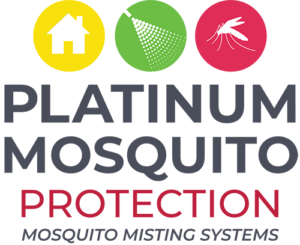
The wind carries them away, but the standing water left in a hurricane’s wake is a mosquito’s favorite place to reproduce
Living in an area prone to hurricanes invites a delayed reaction that can cause problems beyond the damage caused by a storm. The standing water left behind after a hurricane blows through becomes the perfect breeding ground for mosquitos—and the diseases they carry.
There’s a bit of irony involved in the relationship between hurricanes and mosquitos. The strong winds do a welcome and efficient job of sweeping away the resident mosquito population. Unfortunately, it often takes just a few weeks for the pests to return – in force.
Extra production capacity
The high winds of a hurricane can cause widespread damage, and a large amount of rainfall from a storm can be just as punishing to property—and beneficial for mosquitos.
Essentially, mosquitos need water, though it’s not an initial flood that they like. Flood waters stay mostly on the move, and mosquitos need still water for their reproduction. Think of all the sources of standing water that are created after a storm. Each one becomes a potential breeding ground for new mosquitos.
Diseases carried by mosquitoes
Wherever there are mosquitos, there is a valid concern for human safety. West Nile and Zika are two diseases in particular that are a concern. They may be small creatures, but they can cause great harm.
And, as small as they are, mosquitos can cover distances of several miles. Male mosquitoes have a lifespan of only about a week. The female – which bites us – can live for a month or longer. She’s searching for blood, which is required for her egg-laying duties.
The Zika virus (as well as yellow fever, dengue fever, Mayaro virus, and Chikungunya) is transmitted by a species of mosquito known as Aedes aegypti. These pathogens do not affect the mosquito—but it passes them on when it bites humans. West Nile virus is transmitted mostly by a genus of mosquito called Culex.
Keeping mosquitos away
If you don’t want to get bitten by mosquitos, repellants are a solution, though this line of defense requires vigilant reapplication. Repellents containing 20% to 30% DEET offer optimal protection for up to a few hours.
Many people aren’t fans of DEET—regardless of its effectiveness—because of its distinctive smell and stickiness. They often seek out alternatives like lemon oil or eucalyptus, which offer more limited levels of protection, and for a shorter duration.
Larviciding
If you’ve got large areas of relatively still water, it may be helpful to treat them with what’s known as a larvicide. This process applies a pesticide to water that interferes with the mosquito larvae’s ability to develop into an adult. You could pursue this approach if you have a decorative water feature in your yard, but only one that doesn’t circulate – remember, mosquitos need still water to lay their eggs. Most larvicides available for purchase are low in toxicity to animals and fish.
Stopping mosquitos at the source
One of the best defenses against mosquitos – especially after a hurricane or lesser storm – remains preventing them from having a place to develop. Make sure to walk through your yard with a critical eye towards any source of standing water. Keep water out of artificial containers like planter pots and buckets. Look for still water in natural locations like tree holes and mud puddles. You’ll reduce the likelihood of mosquitos when you remove accumulated water.
Of course, getting rid of standing water isn’t the only course of action, and given how far mosquitos travel, it may not do the trick. An automatic misting system will release a liquid insecticide solution in timed bursts to keep these pests out of your yard or business. To learn more about our mosquito control system and to get a free onsite consultation, get in touch with Platinum Mosquito Protection by filling out this online contact form.
